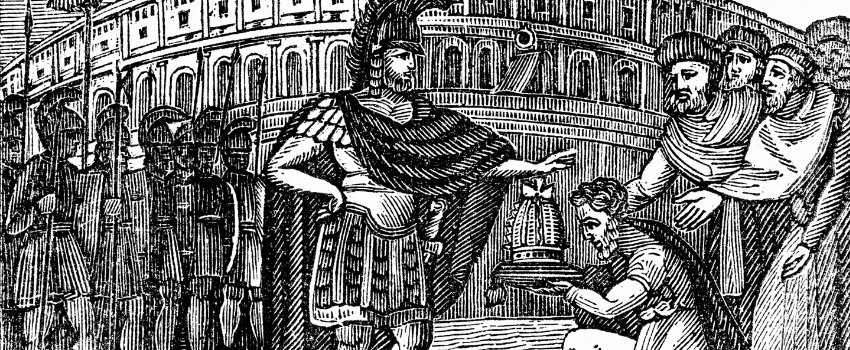
Yesterday I finished listening to Victor Davis Hanson’s The Savior Generals. I’ve also read three other works by him so far:
- The Case For Trump
- A War Like No Other: How The Athenians and Spartans Fought the Peloponnesian War
- Carnage and Culture: Landmark Battles in the Rise to Western Power
They were all excellent as well, I would add.
For that matter, I like Victor Davis Hanson more as a historian the more I read of him. And as a measure of that, I have just this morning purchased on Audible the only other two Hanson titles they have available:
- Who Killed Homer?: The Demise of Classical Education and the Recovery of Greek Wisdom
- The Second World Wars: How the First Global Conflict Was Fought and Won
And I hope there will be still more Victor Davis Hanson titles once I’ve finished those.
But what of The Savior Generals? They saved lost causes and won wars which their countrymen had grown defeatist toward.
Themistocles, Belisarius, William Tecumseh Sherman, Matthew Ridgeway, and David Petraeus – an Athenian, a Byzantine, and three Americans. Each entered martial contests and questioned the status quo, preferring to innovate, adapt, and overcome against regarding as sacred the reputations of strategies, tactics, and paradigms which may have worked previously, but were not proving successful in the conflicts of the moment.
In Common
These five “Savior Generals,” as Hanson calls them, had a few things in common. For one thing, they each plunged themselves headlong into supposedly lost causes. For another, they did not merely question the consensus view of defeatism. They totally rejected it by the way they made arrangements, preparations, and battle plans.
Their troops, their peers, and their superiors – all needed to be managed into realizing their vision of victory. Yet for each having won the confidence of their men, and oftentimes reluctant acquiescence and suspension of disbelief among their peers and superiors, each apparently mastered themselves first. Each was supremely and singularly confident that what they were doing would work if allowed to.
Rallying their soldiers and fighting alongside them – sharing without apparent complaint in the difficulties and trials of their men – each inspired courage and a positive attitude among their subordinates, leading first with an example of the same courage and positivity they knew was essential to victory.
In times of crisis, the jealous suspicion of their fellow generals and the rulers and politicians on whom they depended for support was suspended. So long as the benefits of empowering them to defeat a dangerous and deadly foe outweighed the risk of being upstaged by them, they were given the resources and approval needed to carry out their missions.
Yet when the emergencies they were so instrumental in handling had passed with their critical leadership, they each found themselves to varying extents dismissed and marginalized, and dutifully when not begrudgingly retreated from leadership roles.
The Savior Generals v. Status Quos
Counterproductive, dysfunctional status quos are always supported by unimaginative vanguards who would rather lazily bask in the glow of past victories than do the difficult work of pursuing new ones, however critical.
Tried and true methods, however, oftentimes outlive their usefulness as circumstances change, or as enemies and environments vary.
What separates the overcomers is a willingness to leave the false security of lamely embraced routine to look honestly at the naked truth of new and ever-evolving situations.
Yet just as situations and enemies are always fluid to a greater or lesser extent in their significant particulars, human nature is remarkably consistent. This proves true whether we analyze the ancient Greeks defending against a Persian invasion, Eastern Romans fighting hostile barbarians on all sides, or civil war generals trying to persuade a nation of rebel warriors to give up their confederate resistance.
A jealous emperor or cadre of generals will bide their time in crisis and eventually neutralize even the most capable battlefield commander, making plans for countering their influence even as the innovator himself remains laser-focused on defeating the actual enemy and overcoming obstacles in his path.
So, too, the old adage rings true. “Nothing fails like success.” And savior generals seem to have as much difficulty adapting their personal habits and ways of relating in peacetime as their unimaginative rivals have modifying their peaceful lethargy to existential threats requiring energy in wartime.
Would that it was not so, that jealousy so often in the end turns former allies into traitors. We can wish that savior generals were as effective in times of plenty and prosperity as they are when the life or death of a people, nation, and culture is on the line.
Yet we should learn from them all to not become unthinking slaves to routine.